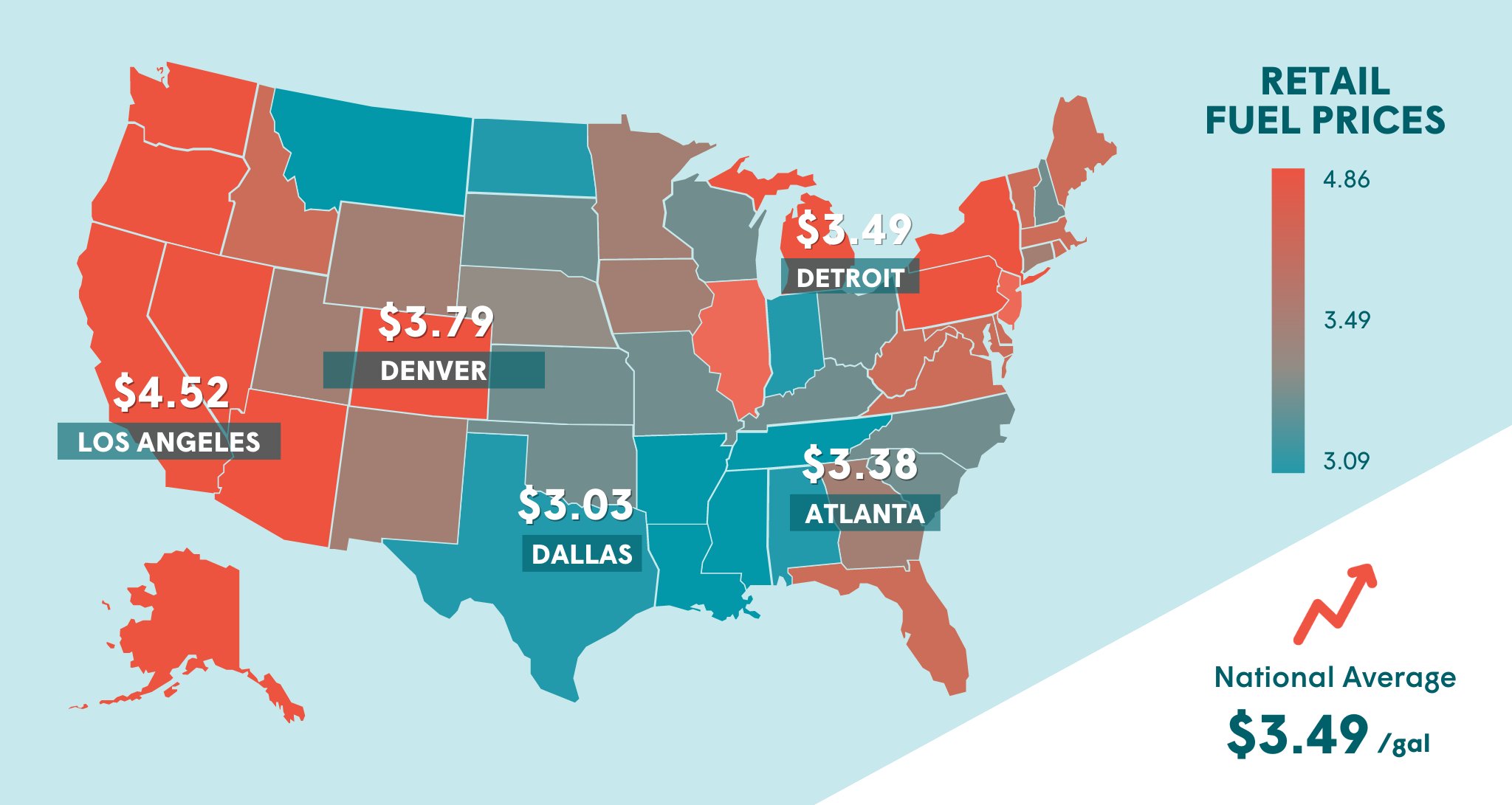Evaluating the Elements Influencing Oil Price and Its Effects on Fuel Oil
The rate of oil is a crucial consider the international economic situation, with far-ranging effects for different markets and consumers. Recognizing the aspects that affect oil costs and their subsequent effects on gas oil is vital for people and organizations alike. This analysis intends to check out the crucial vehicle drivers behind oil rate changes, including supply and need dynamics, geopolitical impacts, and market speculation. Additionally, it will certainly explore just how modifications in oil prices effect gas oil costs, which, subsequently, have considerable effects for different sectors such as production, transportation, and energy production. By delving right into this subject, we can obtain useful insights into the intricate interplay in between oil rates and fuel oil, making it possible for much better decision-making and threat management methods.
Supply and Demand Dynamics
Supply and demand dynamics play a vital duty in determining the price of oil and its influence on the fuel oil market. The worldwide oil market is affected by numerous variables, consisting of geopolitical occasions, financial conditions, and technical innovations. Recognizing the characteristics of supply and need is crucial for stakeholders in the gas oil industry to precisely forecast oil prices and make informed business decisions.

The supply of oil is figured out by the production abilities of oil-producing countries, consisting of OPEC members, non-OPEC nations, and shale oil producers (cheap oil prices long island). Political instability in oil-producing regions, natural calamities, and disputes can interrupt the supply of oil, resulting in rate changes. On the various other hand, technological advancements and boosted investments in expedition and production can enhance supply and stabilize costs
Need for oil is influenced by financial variables such as GDP growth, commercial activity, and transport requirements. Emerging economic situations with rapidly expanding sectors and enhancing urbanization add to the increasing need for oil. Aspects like power change policies, developments in sustainable energy resources, and efficiency enhancements can affect oil need adversely.
The interaction in between supply and need identifies the balance cost of oil. When supply surpasses need, rates tend to decrease, and vice versa. Changes in oil costs have a cascading impact on the fuel oil industry, impacting production costs, success, and consumer habits. As a result, stakeholders in the gas oil industry closely keep track of supply and demand dynamics to anticipate rate movements and adjust their techniques accordingly.
Geopolitical Influences
Geopolitical elements substantially affect the international oil market and ultimately affect the rate of oil and its results on the gas oil sector. Any kind of disruption in oil supply from the Middle East due to political instability or conflicts can cause a considerable boost in oil prices. In general, understanding and assessing geopolitical influences is essential for predicting oil price movements and their results on the gas oil industry.
Market Supposition
Market speculation plays a significant duty in forming the characteristics of the oil cost and its impact on the fuel oil market. Conjecture refers to the task of acquiring and marketing oil contracts with the expectation of making benefit from rate variations. Investors, financiers, and banks involve in market supposition to capitalize on short-term price activities. Their activities, influenced by numerous variables such as financial signs, geopolitical events, and supply and need dynamics, can add to boosted volatility in the oil market.
Market conjecture can have both adverse and positive results on the gas oil market. On one hand, it can provide liquidity and effectiveness to the market by promoting cost exploration and danger management. Speculators bring added capital and expertise, improving market deepness and enabling smoother purchases. This can benefit gas oil producers and customers by providing a much more clear and stable prices device.
On the other hand, extreme supposition can lead to cost distortions and market control. Speculative tasks driven by herd mentality or unreasonable exuberance can cause costs to depart from their basic worths. This can result in enhanced cost volatility, making it testing for gas oil sector individuals to make and plan informed decisions. Furthermore, extreme supposition can develop fabricated cost bubbles, which, when they break, go to my blog can have extreme effects for the gas oil sector and the broader economy.
Influence On Fuel Oil Prices
The impact of market conjecture on fuel oil costs can be substantial. Market conjecture refers to the trading of fuel oil contracts based upon expected cost movements, instead than on the real physical supply and demand of the asset. Speculators, such as hedge funds and financial investment financial institutions, play a crucial duty in establishing fuel oil prices as they get involved in futures trading, which can affect the overall market belief and prices.
When speculators think that fuel oil rates will certainly increase, they often tend to get contracts, increasing the demand and therefore the rate of fuel oil. On the various other hand, when speculators expect a decrease in rates, they offer agreements, resulting in a decrease in need and subsequently reduced fuel oil costs.
The impact of market supposition on fuel oil costs can be both positive and negative. On one hand, it can supply liquidity and aid support the marketplace by allowing manufacturers and consumers to hedge against rate fluctuations. On the various other hand, extreme speculation can cause cost volatility and distortions, which can have adverse impacts on gas oil prices and the general economic situation.
It is very important for policymakers and market regulatory authorities to manage and keep track of market supposition to ensure that it does not end up being extreme and undercut gas oil costs. By implementing efficient laws and oversight, authorities can reduce the prospective adverse impacts of market supposition and maintain stability in fuel oil costs.
Impacts on Industries and Consumers
Industries and customers are dramatically impacted by the changes in gas oil costs. When oil rates climb, sectors that count greatly on fuel oil for their operations, such as production, transport, and agriculture, experience enhanced production expenses. These extra expenditures are usually handed down to customers in the kind of greater rates for items and solutions. Climbing gas blog oil costs can result in boosted transportation costs, leading to greater costs for products that need to be transferred long distances. In a similar way, sectors that utilize fuel oil as a basic material, such as chemicals and plastics, may see their production costs climb, which can likewise be passed on to customers.
Furthermore, greater fuel oil rates can likewise influence consumer habits. As the price of fuel surges, customers may need to allocate more of their spending this page plan towards transportation expenditures, leaving less cash for other purchases. This can bring about a decrease in discretionary investing and a slowdown in consumer-driven markets such as retail and friendliness.
On the other hand, when fuel oil costs decrease, industries may profit from reduced production expenses, causing potential cost savings that can be handed down to customers. cod oil prices long island. Lower fuel costs can additionally stimulate consumer costs, as people have more disposable revenue to designate in the direction of various other goods and services
Conclusion
Finally, the cost of oil is affected by different variables such as supply and need characteristics, geopolitical influences, and market speculation. These elements have substantial effects on fuel oil prices, which in turn impact different industries and consumers. Comprehending these influences is vital for policymakers, customers, and organizations to browse the changes in oil prices and reduce their impacts on the economic climate.

Market supposition plays a substantial duty in forming the characteristics of the oil rate and its influence on the fuel oil industry. When oil prices rise, industries that rely heavily on gas oil for their operations, such as agriculture, transportation, and production, experience boosted production costs.